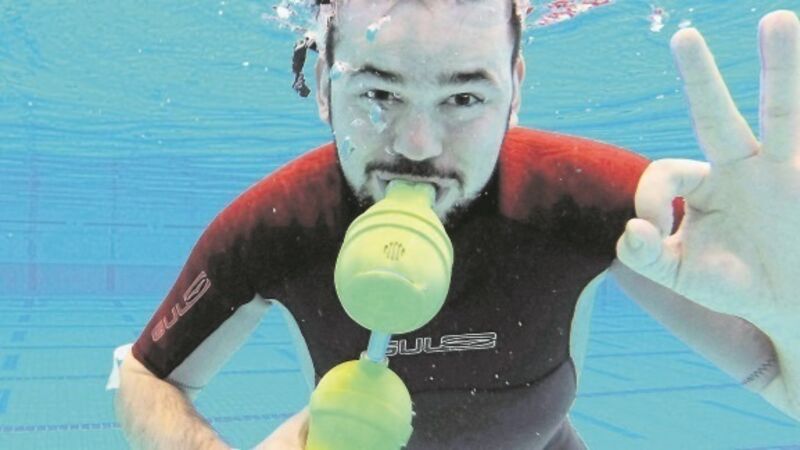UL student makes waves with underwater breathing system

The product allows the wearer breathe underwater for up to two minutes. Once the air beings to run out, the user simply goes back to the surface and presses a button to refill the one litre tank from the surrounding air.
Cathal Redmond, who is originally from Wexford, has just won the prestigious Irish leg of the James Dyson Award for the design, which he calls ‘Express Dive’.













